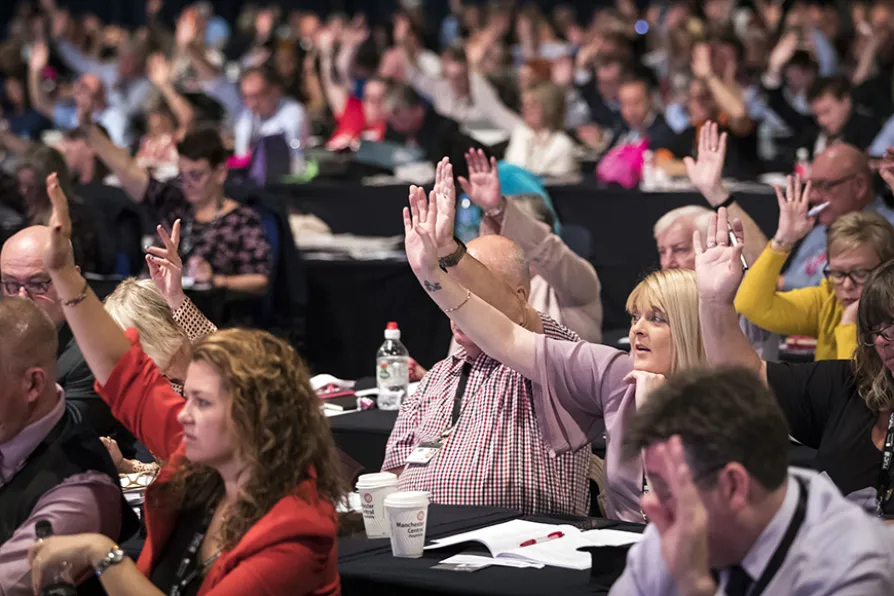Once the bustling heart of Christian pilgrimage, Bethlehem now faces shuttered hotels, empty streets and a shrinking Christian community, while Israel’s assault on Gaza and the tightening grip of occupation destroy hopes of peace at the birthplace of Christ, writes Father GEOFF BOTTOMS

 Delegates to TUC Congress in 2018 vote on a motion
Delegates to TUC Congress in 2018 vote on a motion
TUC general secretary Frances O’Grady has slammed ministers for “trying to tie unions up in red tape” after the government’s proposals included three key major changes that will negatively affect the labour movement.
The Certification Officer — the trade union regulator — will have the ability to impose fines on unions; there will be levy on trade unions to fund the CO’s costs; there will be further new powers, including investigating third party complaints about unions by members of the public and third party organisations.
This will not even be debated in Parliament as this requires a commencement order to come into law. Importantly, the TUC was not consulted about these proposals.
The government is dusting off measures that were contained in notorious Trade Union Act 2016 but need secondary legislation to pass into law.

Roger McKenzie talks to general secretary of Unison CHRISTINA McANEA about the impact of the cost-of-living crisis on members, the local government funding emergency and the threat of Reform UK

The visa system traps workers with abusive employers, creating a vulnerable workforce scared to complain for fear of deportation — that is why we’re campaigning for a ‘common sponsorship’ model instead, writes FAVOUR DAVIDKING

It is only trade union power at work that will materially improve the lot of working people as a class but without sector-wide collective bargaining and a right to take sympathetic strike action, we are hamstrung in the fight to tilt back the balance of power, argues ADRIAN WEIR












